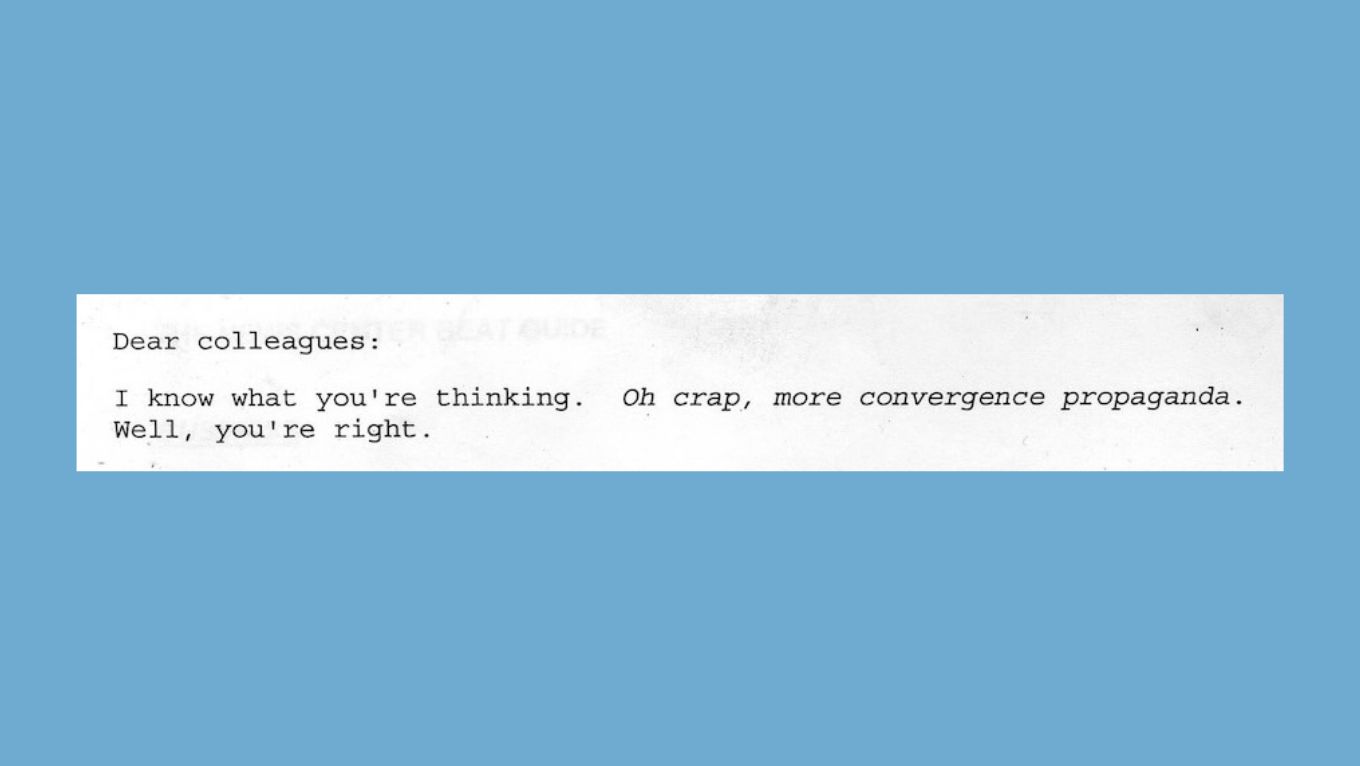Professional
-

The More Things Change, The More I Write The Same
I went back in time 20 years and found something I could have written 20 minutes ago. (I’m talking about figurative time travel. My flux capacitor is in the shop.)
-
Hiring Shaq Doesn’t Guarantee a Slam Dunk
There are few things that delight me more than seeing a poorly conceived ad on teevee. It’s wasteful, and I cringe when I think about the armies of people who tossed wads of dollars into a creative effort that entirely missed the mark. And that’s why I enjoy them —…
-
There Are no Stupid Questions, but There Are Definitely Stupid Answers
When college career counselors prepared me to enter the job market,1 they drilled one lesson in my head: Be prepared to tell interviewers why you want the job. That lesson sprang to mind a few days ago as I read the obituaries for journalist Roger Mudd. All of the coverage…
-
Going Beyond the Basics of Benefits: Business and Government Perspectives
I’ve written before about my marketing mantra: Always promote the benefits. I got to do exactly that in a non-business context yesterday when I spoke at city hall to support a proposal to make Tampa’s Citizen Review Board more independent. I’m grateful that others were able to offer legal perspectives,…
-
The Case Against Passion
Do what you love, and you’ll never work a day in your life. I’ve heard that cliché for longer than I can remember, and it has always rubbed me the wrong way. To me — in fact, I’d bet, to a lot of people in the workforce — this saying sounds…
-
My Ulterior Motive, Revealed
You might be wondering if I have any nefarious plans for the Daily Dave. The answer is no.1 I’ve started blogging again for two perfectly cromulent reasons. I want to … If nothing else, the Daily Dave allows me to write for pleasure and learn new things. But I’m also…
-
The Benefits of Benefits
If I can summarize my approach to marketing in just three words, it would be this: Benefits beat features. It doesn’t matter if you’re trying to sell water or change the world. Focus on the benefits of your product, service, or idea to make an impact with your audience. A…
-
I Want to Forge a New Path
One of the most frustrating challenges in my life has been figuring out where I fit into the professional world. I left college hoping to make a mark as a reporter, and was fortunate enough to leave that career path for a position in professional services before newspapers caved in.1…